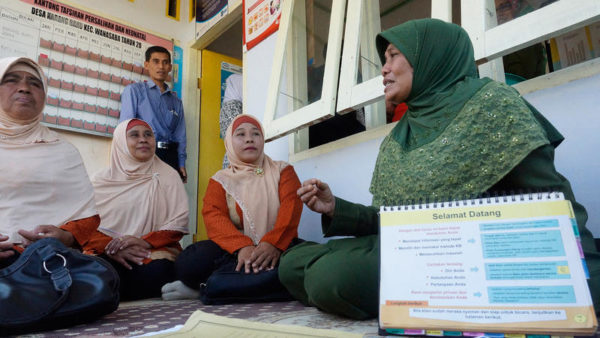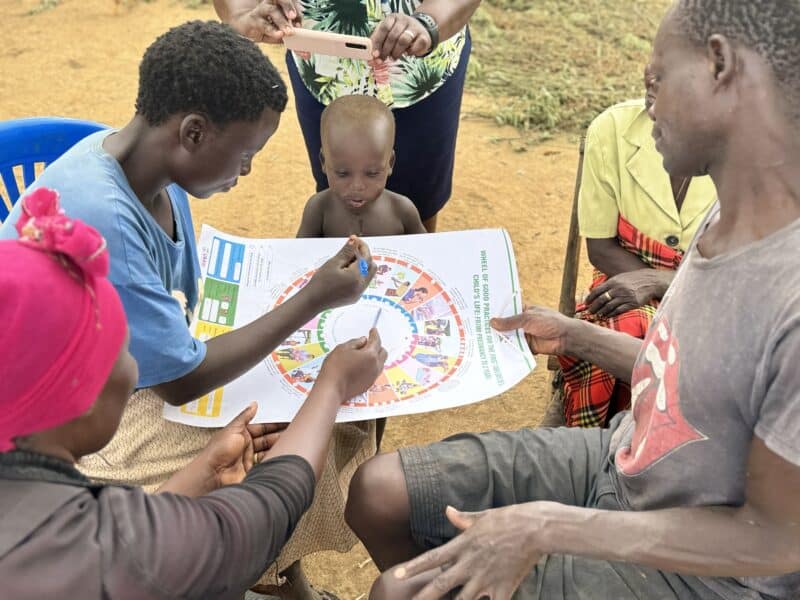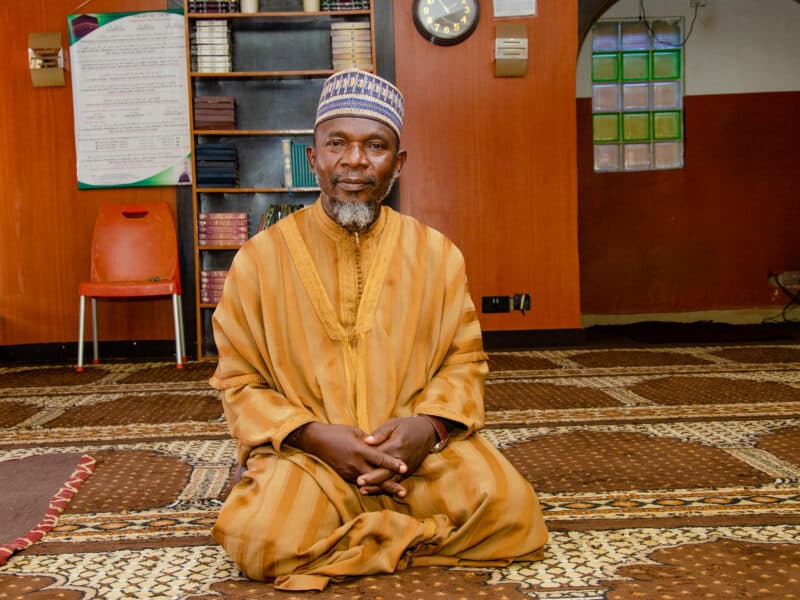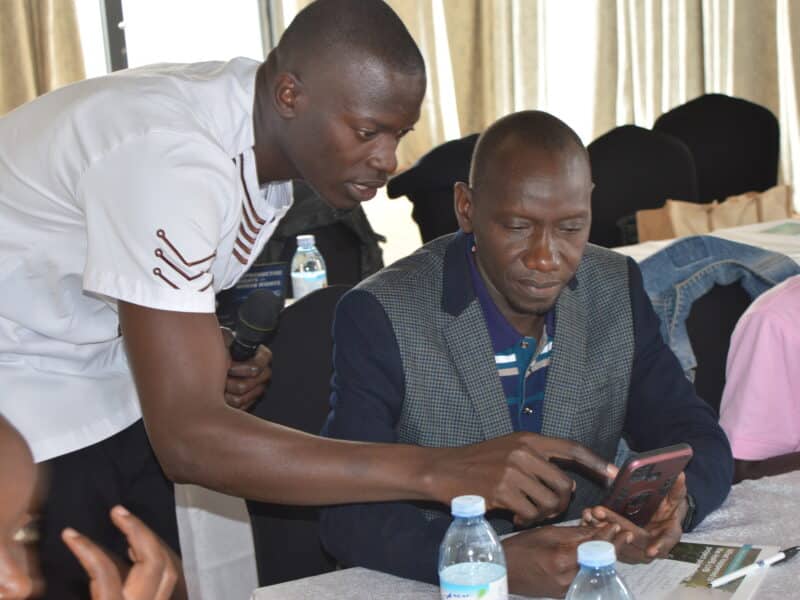BKKBN, Indonesia’s national family planning agency, has adopted a program developed by the Johns Hopkins Center for Communication Programs that has boosted the use of modern contraception in several regions of the country and is now scaling it up nationwide.
The MyChoice model, as it is known, is built on creating demand for modern contraception by improving family planning counseling, providing easy-to-use digital tools for consumers and providers and increasing access to a variety of contraceptive methods, especially the long-acting reversible contraceptives such as IUDs and implants that weren’t widely available in Indonesia.
“BKKBN has seen the impact of MyChoice in the communities and districts where it is being implemented,” says Fitri Putjuk, CCP’s country representative in Indonesia. “They have ensured it will be sustainable by adopting the model, scaling up activities nationwide and putting money in their budget to pay for it.”
Indonesia was known as a success in family planning circles until the use of modern contraception stagnated in the country in the late 1990s. Currently, modern contraception use is significantly lower in Indonesia than in many other Asian countries. Family planning decisions, once made at the national government level, have been decentralized and the power over policies and resources now rests in 535 district governments across the country.
CCP’s MyChoice project, funded by the Bill & Melinda Gates Foundation since 2014, was created to revitalize family planning in Indonesia, starting with 11 districts in four provinces. Since BKKBN has adopted the model, the work is being done in six of Indonesia’s 34 provinces, an area that includes nearly 70 percent of the nation’s population.
“The MyChoice project has proven that it is possible to help more women to use modern contraception, especially long-acting methods, when they are offered choices that work for them at various stages of their lives,” says Alice Payne Merritt, MPH, CCP’s deputy director who oversees the center’s Indonesia work. “With BKKBN’s support, we believe women and men all across Indonesia will have the opportunity to access the contraception that best meets their needs.”
Across Indonesia, just 57 percent of women of childbearing age in 2017 were using modern contraception and 13 percent of women who wanted contraception couldn’t access it. Short-term contraception methods such as short-acting injections and pills dominate the landscape despite the fact that women using those methods are more likely to become pregnant when they don’t want to because their effects don’t last as long and it is easy to let those methods lapse. Fewer women use IUDs across Indonesia than did 20 years ago.
Among the efforts taken on by MyChoice include developing mass media campaigns to urge the appropriate use of contraception across a woman’s reproductive life span, strengthening postpartum family planning programs at high-volume birthing centers and improving the supply chain that enables women to have contraceptive method choice. MyChoice has also helped train family planning providers and developed a menu of web-based tools and apps for everyone from consumers to community organizers. It has also capitalized on a vast network of community-level motivators to encourage contraceptive use.
MyChoice has also adapted along the way. A mid-line evaluation of the program in 2016 found that women were still not getting the information they needed during family planning counseling. So the team, in consultation with BKKBN, decided to adapt a “Balanced Counseling Strategy” that was working well as part of MyChoice’s postpartum family planning program and use it across all family planning programs. A job aid tablet using the strategy was also developed for counselors, and midwives were also trained.
Currently, MyChoice is working with BKKBN to reach local decision makers in 535 districts, the ones who will decide how to best use MyChoice in their communities.
CCP has partnered with JSI Research & Training Institute Inc., and Jhpiego on the MyChoice project.





